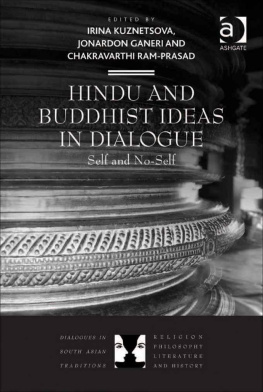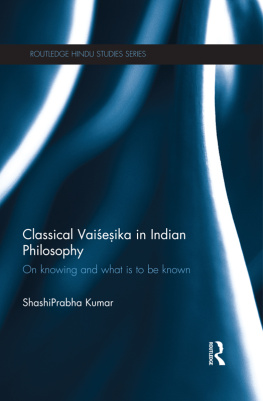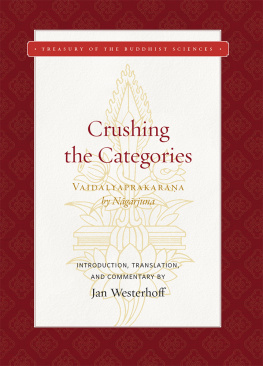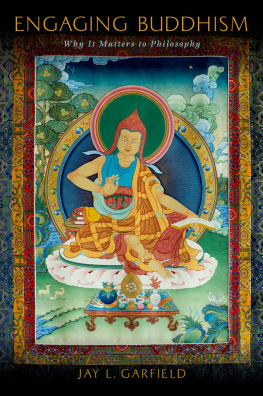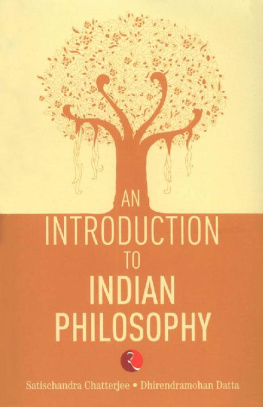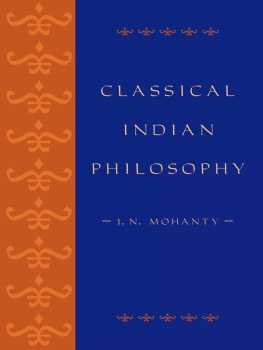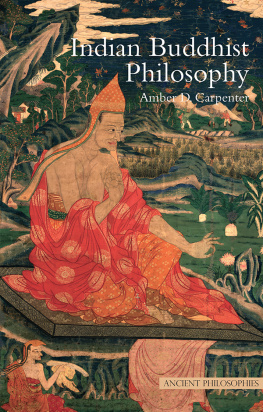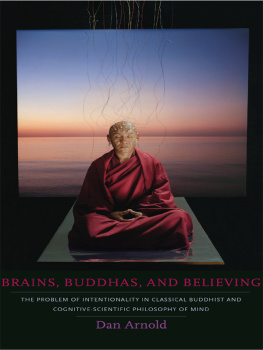HINDU AND BUDDHIST IDEAS IN DIALOGUE
The debates between various Buddhist and Hindu philosophical systems about the existence, definition and nature of self, occupy a central place in the history of Indian philosophy and religion. These debates concern various issues: what self means, whether the self can be said to exist at all, arguments that can substantiate any position on this question, how the ordinary reality of individual persons can be explained, and the consequences of each position. At a time when comparable issues are at the forefront of contemporary Western philosophy, in both analytic and continental traditions (as well as in their interaction), these classical and medieval Indian debates widen and globalize such discussions. This book brings to a wider audience the sophisticated range of positions held by various systems of thought in classical India.
DIALOGUES IN SOUTH ASIAN TRADITIONS:
RELIGION, PHILOSOPHY, LITERATURE AND HISTORY
Series Editors
Laurie Patton, Duke University, USA
Brian Black, Lancaster University, UK
Face-to-face conversation and dialogue are defining features of South Asian traditional texts, rituals and practices. Not only has the region of South Asia always consisted of a multiplicity of peoples and cultures in communication with each other, but also performed and written dialogues have been indelible features within the religions of South Asia; Hinduism, Buddhism, Jainism, Sikhism, and Islam are all multi-vocal religions. Their doctrines, practices, and institutions have never had only one voice of authority, and dialogue has been a shared tactic for negotiating contesting interpretations within each tradition.
This series examines the use of the dialogical genre in South Asian religious and cultural traditions. Historical inquiries into the plurality of religious identity in South Asia, particularly when constructed by the dialogical genre, are crucial in an age when, as Amartya Sen has recently observed, singular identities seem to hold more destructive sway than multiple ones. This series will approach dialogue in its widest sense, including discussion, debate, argument, conversation, communication, confrontation, and negotiation. It will aim to open up a dynamic historical and literary mode of analysis, which assumes the plural dimensions of religious identities and communities from the start. In this way the series aims to challenge many outdated assumptions and representations of South Asian religions.
Hindu and Buddhist Ideas in Dialogue
Self and No-Self
Edited by
IRINA KUZNETSOVA
Lancaster University, UK
JONARDON GANERI
University of Sussex, UK
CHAKRAVARTHI RAM-PRASAD
Lancaster University, UK
ASHGATE
Irina Kuznetsova, Jonardon Ganeri, Chakravarthi Ram-Prasad and the Contributors 2012
All rights reserved. No part of this publication may be reproduced, stored in a retrieval system or transmitted in any form or by any means, electronic, mechanical, photocopying, recording or otherwise without the prior permission of the publisher.
Irina Kuznetsova, Jonardon Ganeri and Chakravarthi Ram-Prasad have asserted their right under the Copyright, Designs and Patents Act, 1988, to be identified as the editors of this work.
Published by
Ashgate Publishing Limited
Wey Court East
Union Road
Farnham
Surrey, GU9 7PT
England
Ashgate Publishing Company
Suite 420
101 Cherry Street
Burlington
VT 054014405
USA
www.ashgate.com
British Library Cataloguing in Publication Data
Hindu and Buddhist ideas in dialogue : self and no-self. (Dialogues in South Asian traditions)
1. Self (Philosophy) 2. Hindu philosophy. 3. Buddhist philosophy.
4. Philosophy, Comparative.
I. Series II. Kuznetsova, Irina (Irina Nicolaevna) III. Ganeri, Jonardon.
IV. Ram-Prasad, Chakravarthi.
181.043-dc23
Library of Congress Cataloging-in-Publication Data
Hindu and Buddhist ideas in dialogue: self and no-self / Edited by Irina Kuznetsova,
Jonardon Ganeri and Chakravarthi Ram-Prasad.
pages cm. (Dialogues in South Asian traditions: religion, philosophy, literature and history)
Includes bibliographical references and index.
ISBN 978-1-4094-4354-4 (hardcover : alk. paper) ISBN 978-1-4094-4355-1 (ebook)
1. Hindu philosophy. 2. Buddhist philosophy. 3. Atman. 4. Anatman. 5. HinduismRelationsBuddhism. 6. BuddhismRelationsHinduism.
I. Kuznetsova, Irina (Doctor of philosophy), editor of compilation. II. Ganeri, Jonardon, editor of compilation. III. Ram-Prasad, Chakravarthi, editor of compilation.
B132.A8H56 2012
294.3422dc23
2011050503
ISBN 9781409443544 (hbk)
ISBN 9781409443551 (ebk-PDF)
ISBN 9781409456629 (ebk-ePUB)

Printed and bound in Great Britain by the MPG Books Group, UK.
Contents
Chakravarthi Ram-Prasad
Brian Black
Marzenna Jakubczak
Mikel Burley
Jonardon Ganeri
Irina Kuznetsova
John Taber
Douglas L. Berger
Chakravarthi Ram-Prasad
Elisa Freschi
Wolfgang Fasching
Matthew MacKenzie
Arindam Chakrabarti
Ankur Barua
Notes on Contributors
Ankur Barua, University of Delhi, is the author of The Divine Body in History: A Comparative Study of the Symbolism of Time and Embodiment in St Augustine and Rmnuja (Bern: Peter Lang, 2009).
Douglas L. Berger, Southern Illinois University-Carbondale, is the author of The Veil of My: Schopenhauers System and Early Indian Thought (Binghampton, NY: Global Academic Publishing, 2004).
Brian Black, Lancaster University, is the author of The Character of the Self in Ancient India: Priests, Kings, and Women in the Early Upaniads (Albany, NY: State University of New York Press, 2007).
Mikel Burley, University of Leeds, is the author of Classical Skhya and Yoga: An Indian Metaphysics of Experience (London: Routledge, 2007).
Arindam Chakrabarti, University of Hawaii, has written many influential papers in Indian and comparative philosophy, including The Nyya proofs for the existence of the soul, Journal of Indian Philosophy (1982), I touch what I saw, Philosophy and Phenomenological Research (1992), and Against immaculate perception, Philosophy East and West (2000). He is also the author of Denying Existence: The Logic, Epistemology and Pragmatics of Negative Existentials and Fictional Discourse (New York: Springer, 1997).
Wolfgang Fasching, University of Vienna: his publications include Phnomenologische Reduktion und Mushin: Edmund Husserls Bewusstseinstheorie und der Zen-Buddhismus (Freiburg and Munich: Alber, 2003).
Elisa Freschi, Sapienza University of Rome, is the author of Duty, Language and Exegesis in Prbhkara Mms: Including an Edition and Translation of Rmnujcryas Tantrarahasya, straprameyapariccheda (Leiden: Brill 2012).
Jonardon Ganeri, University of Sussex, has published extensively on a range of topics, and his books include Philosophy in Classical India (London: Routledge, 2002), The Concealed Art of the Soul (Oxford: Clarendon Press, 2007), The Lost Age of Reason: Philosophy in Early Modern India 14501700 CE
Next page
